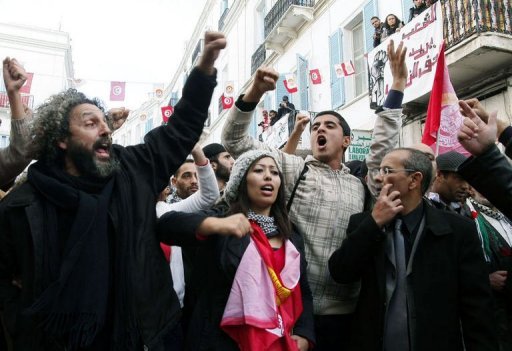Hezbollah, a Lebanese Shiite military group, vowed Tuesday to retaliate against Israel’s “brutal aggression” after two journalists from Lebanese TV channel Al-Mayadeen were killed in Israeli attacks on the southern Lebanon village of Tayr Harfa.
“This crime, the previous attack on Reuters photojournalist Issam Abdallah, the killing of dozens of journalists in Gaza and the destruction of their headquarters by the occupation forces, reveals the important role played by the media in exposing the enemy’s practices and exposing its horrific crimes against civilians, especially in the Gaza Strip,” Hezbollah said in a statement.
The military group called on international media and humanitarian bodies to condemn the “crime and similar crimes that preceded it,” and “exert the highest levels of pressure” on the Israeli government to stop its attacks on media professionals and civilians.
Meanwhile, Lebanese Prime Minister Najib Mikati strongly condemned the Israeli attacks that killed media professionals in the south on Tuesday. He said the attack proved once again that “Israel’s goal is to silence the media that exposes its crimes and attacks.”
For his part, Lebanese Defence Minister Maurice Slim called for “a unified and effective Arab and international position in the face of the continuous Israeli aggression as statements of denunciation and condemnation are no longer sufficient.”
Farah Omar, a reporter working for local TV channel Al-Mayadeen, and Rabih Al-Maamari, a photographer working for the same channel, were covering the events in southern Lebanon on Tuesday when two Israeli drones hit them, killing both of them and a civilian named Hussein Akil, Lebanese TV channel Al-Manar reported.
On Oct. 13, Issam Abdallah, a Lebanese photojournalist working for Reuters, was killed while covering Israeli attacks in the southern village of Alma al-Shaab while several other journalists working for Agence France-Presse and Al Jazeera were injured.
On Oct. 14, the Lebanese Foreign Ministry submitted a complaint to the United Nations Security Council against Israel for launching attacks on journalists.
The Lebanon-Israel border witnessed increased tension for over six weeks after Lebanese armed group Hezbollah fired dozens of rockets toward Shebaa Farms on Oct. 8 in support of the Hamas attacks on Israel the previous day, prompting the Israeli forces to respond by firing heavy artillery toward several areas in southeastern Lebanon.



